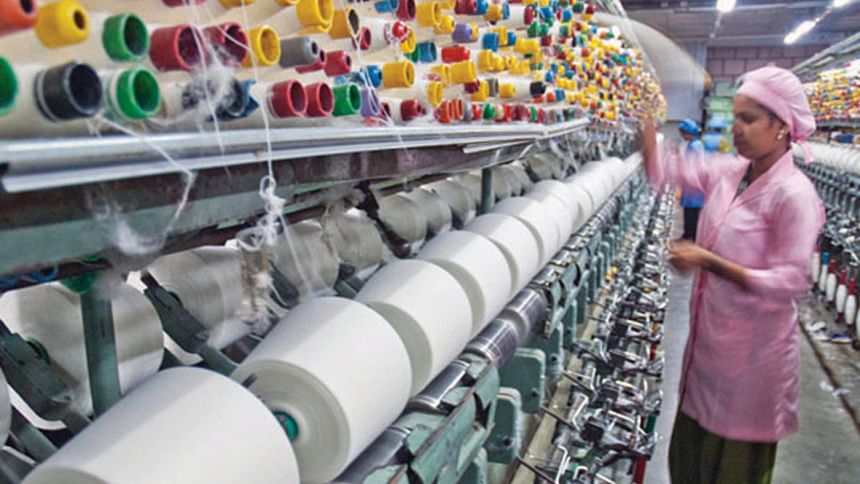Gas shortage taking toll on textile millers

Primary textile millers want adequate gas supply in their factories as nearly 40 percent of their production capacity is currently unutilised due to low pressure of gas, the price of which increased by nearly 100 percent in February this year.
Last Thursday, the standing committee on power, energy and utility of the Bangladesh Textile Mills Association (BTMA) held a meeting with its members about the supply of gas and power in textile mills, expressing serious concerns about low pressure.
In the meeting, the millers gave five suggestions for the government. One of the recommendations was formulating an energy policy and diverting gas to textile mills from closed power plants and quick rental power units.
Since the government can import fertiliser, the government may also consider supplying gas to textile mills by diverting energy from fertiliser factories if possible.
Other suggestions included supplying gas to textile mills through rationing of gas from CNG stations and planning how to ensure the best use of gas from Bhola.
The millers will hold a press conference soon to highlight the importance of the textile sector in the economy and will present their suggestions during meetings with the energy secretary and principal secretary to the prime minister.
They also have plans to meet the prime minister to apprise her of the situation along with representatives from the Bangladesh Garment Manufacturers and Exporters Association, Bangladesh Knitwear Manufacturers and Exporters Association, and the Federation of Bangladesh Chambers of Commerce and Industry.
Razeeb Haider, chairman of the standing committee of the BTMA, said this was the primary plan.
The sector needs adequate pressure of gas as the capacity is now idle in the mills, he said. If the mills cannot run at full capacity, they will face losses and that will discourage further investment in the sector, he added.
Khorshed Alam, chairman of Little Group, a spinner, said it was not only textile millers that were suffering due to persistently low pressure of gas, but also some garment factories.
Textile mills should be aided to use their full capacity during this time of economic crisis so they can contribute to earning more foreign currency, he said.
Because garment manufacturers are reducing their dependence on imported yarn and fabrics and instead using more local raw materials to meet shorter lead times, which are very important for international buyers, their capacity has increased further, he added.

 For all latest news, follow The Daily Star's Google News channel.
For all latest news, follow The Daily Star's Google News channel. 







Comments